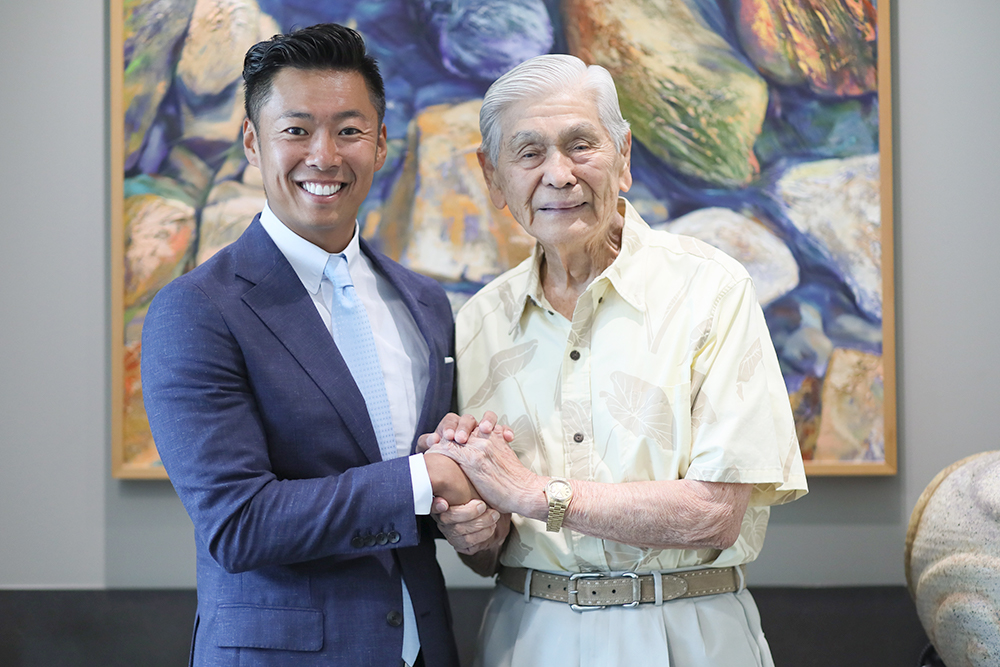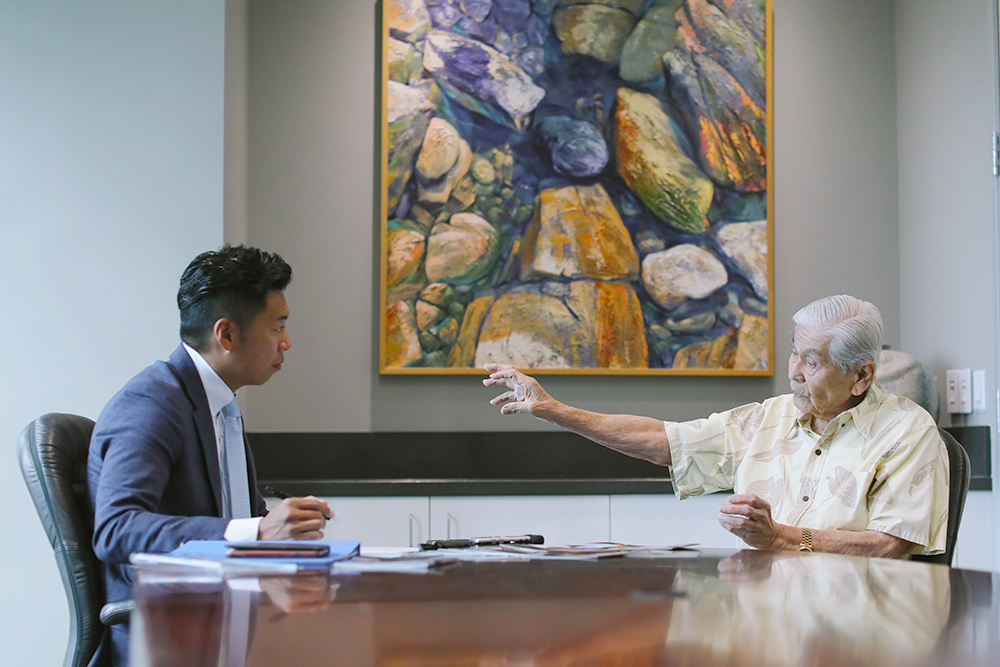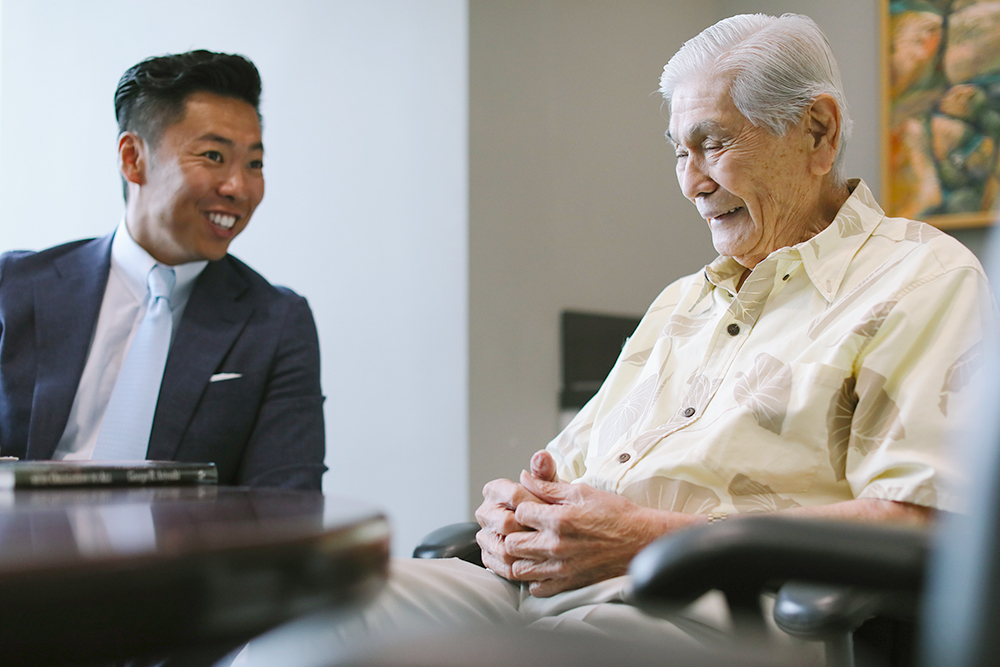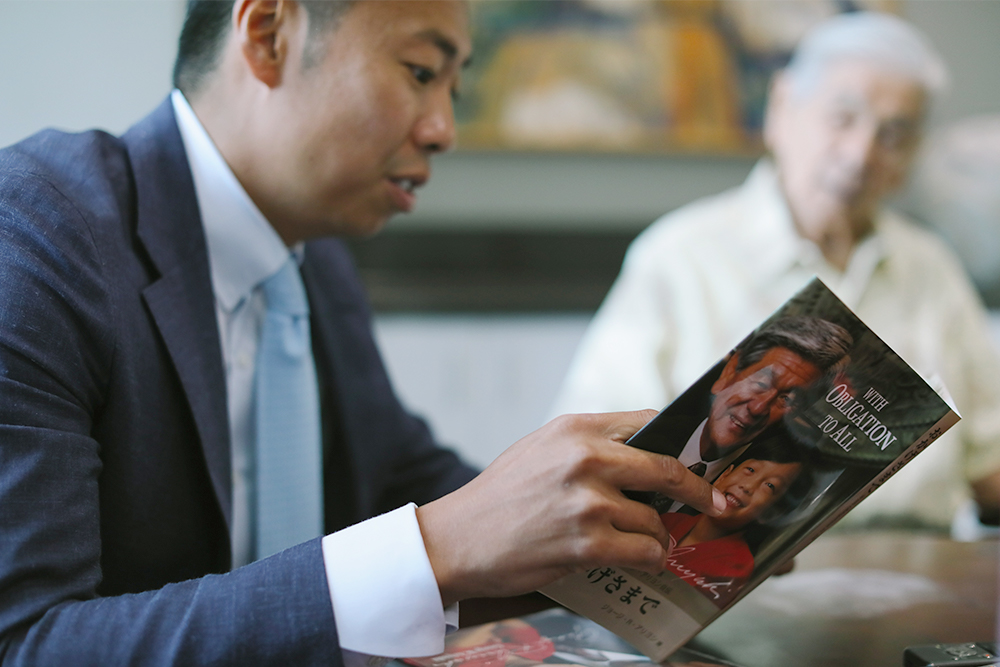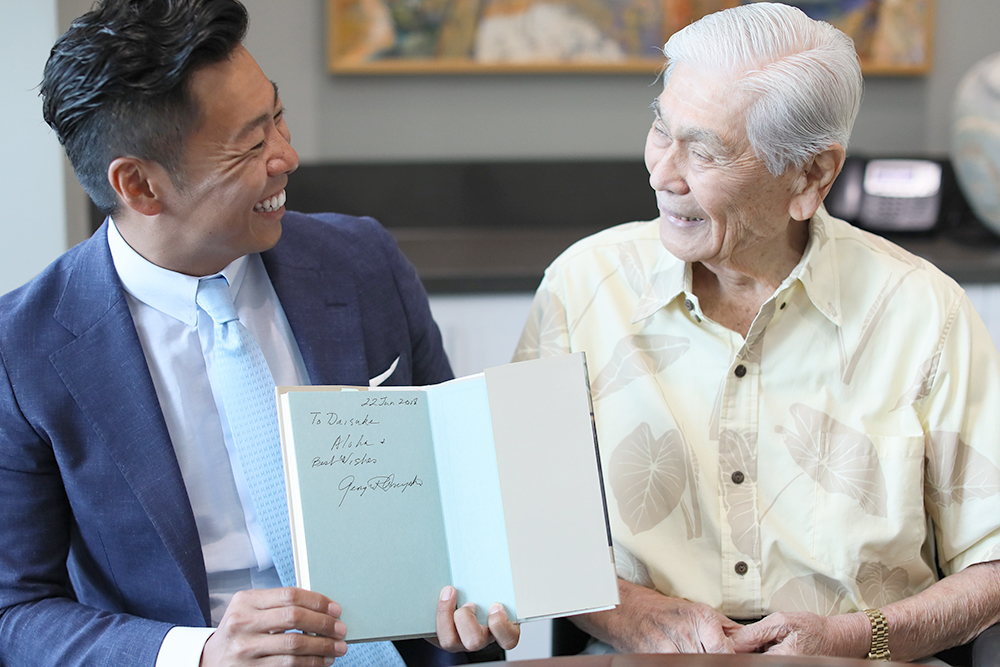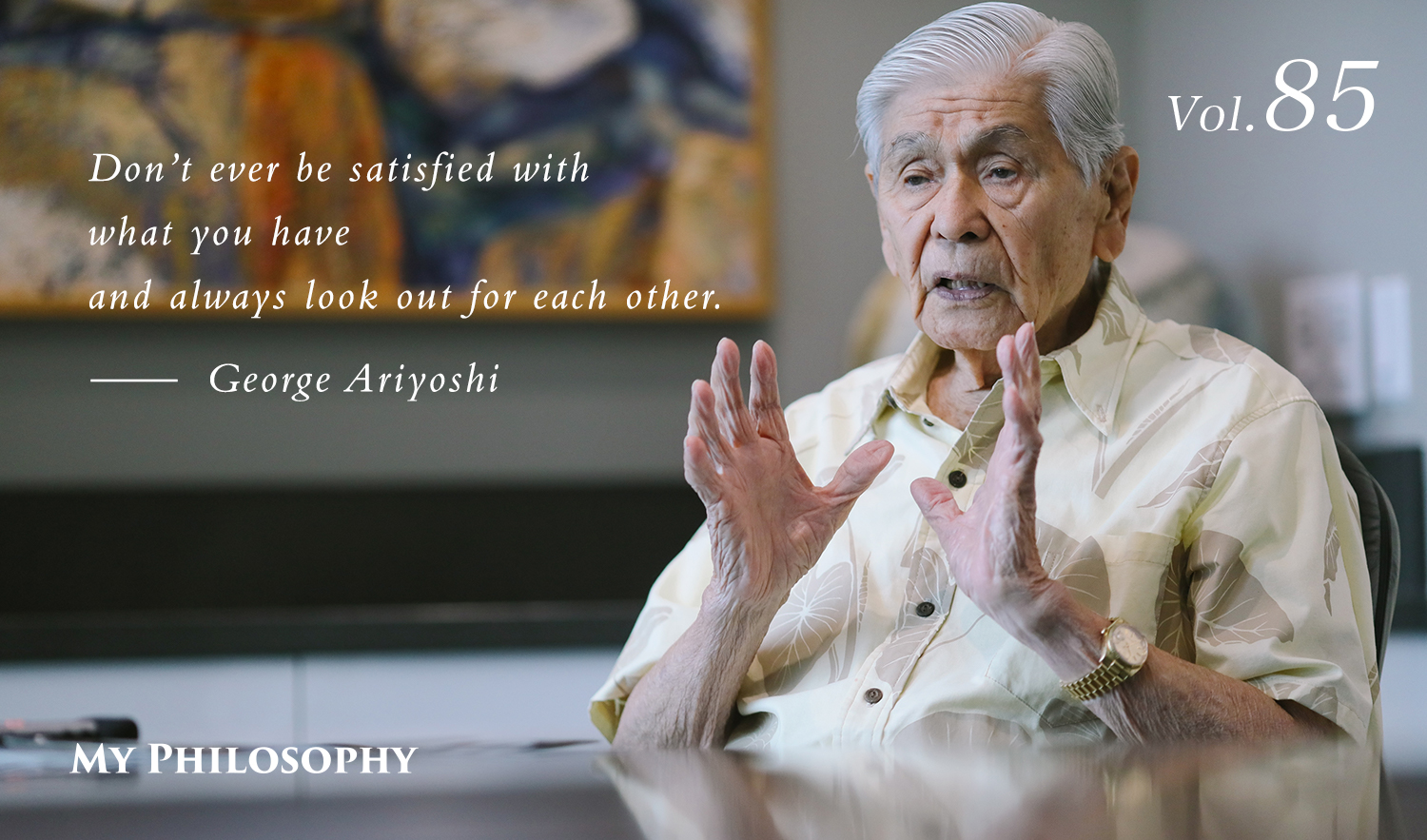
In 1973, George Ariyoshi became the first Asian American to serve as a U.S. governor. A champion of fairness and justice, Hawaii’s longest-serving leader sits down to talk business, politics, leadership, and the future of Hawaii as he sees it.
Profile
Vol.85 George Ariyoshi
Former Governor of Hawaii
The Honorable Governor Ariyoshi was a three-term governor of the state of Hawaii, serving as Governor of the State of Hawaii from 1973 to 1986. He holds the distinction of having been the longest serving governor in the state’s history. He was also Lt. Governor of Hawaii, Territorial and State Senator, Territorial House of Representative and has held elected public office since 1954. After his career in politics, he served as President of the Bar Association of Hawaii and Chairman of the Board for the East-West Center and Pacific International Center for High Technology Research (PICHTR). He was also a member of President Clinton's Advisory Committee on Trade Policy and Negotiations (ACTPN), the National Public Broadcasting System Board (PBS), and the Japan Foundation Center for Global Policies Board. He received his J.D. from the University of Michigan, Ann Arbor and a B.A. from Michigan State University. Throughout his career, he has also received three honorary doctorates in law as well as three honorary doctorates in humanities and has been awarded the Grand Cordon of the Sacred Treasure, and the Emperor's Silver Cup from the Japanese Government in 1985.
The True Meaning of Fairness
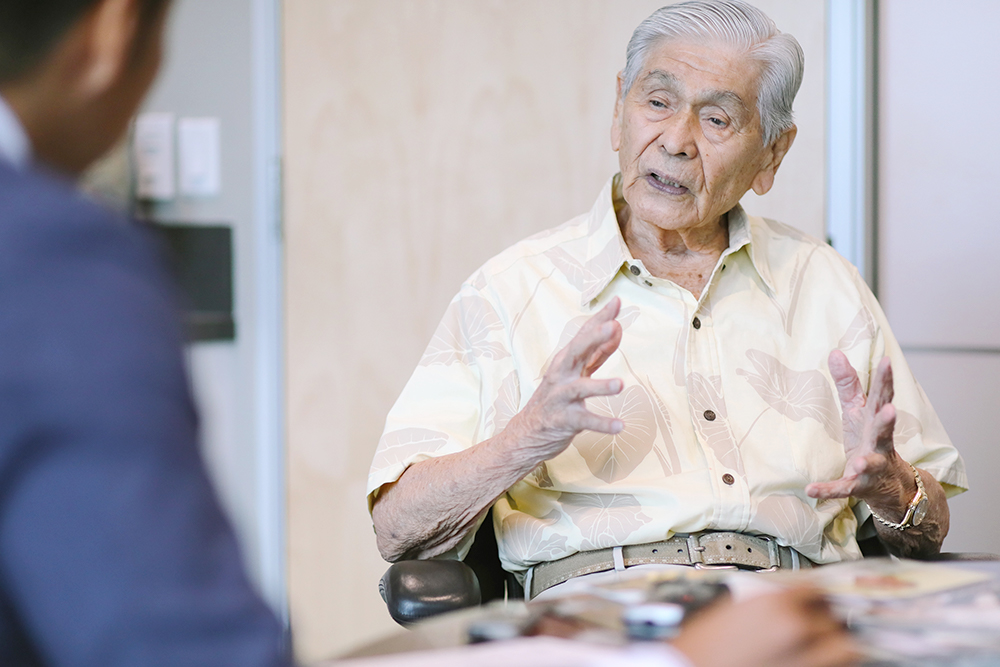
Ever since eighth grade, I dreamed of becoming a lawyer. I always thought that if I were a lawyer I could help a lot of people in need. That was until I met Jack Burns, a Montana-born politician who represented Hawaii at the House of Representatives and went onto become the state’s second governor. I had just gotten my license to practice law when I met him, and he asked me if I knew about the discrimination on Hawaiian plantations. While I myself grew up in the city, I knew about the plantations and their unfair labor practices. All property in the Hawaiian Territory was controlled by five large companies, who owned the sugarcane and pineapple plantations. They ran the banks and big businesses and controlled the waterfront.
Jack Burns convinced me to deal with corporate injustice, and so I started my political career when I was elected to the Hawaii Territorial House of Representatives in 1954 alongside men like Dan Inouye and Spark Matsunaga. I wanted to rectify the unjust treatment and bring fairness to the sugarcane plantations by first providing unemployment coverage to fieldworkers. Plantation fieldworkers were not covered under the contemporary unemployment laws while other workers, like mechanics and technicians, were. I thought this was unfair.
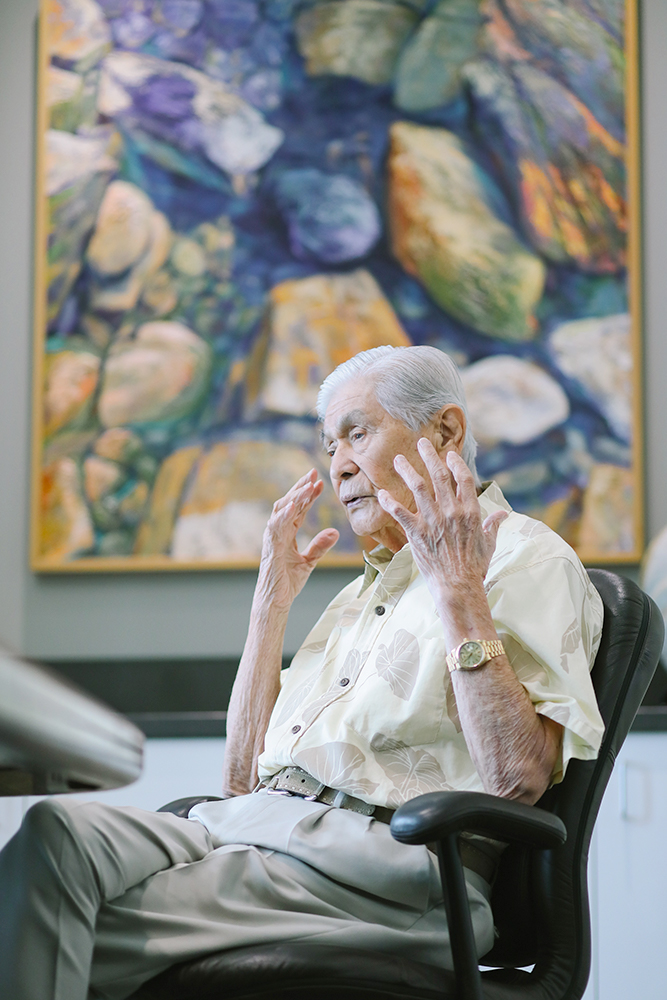
Fairness, to me, means helping your friends and taking care of them to make sure that they are not ill-treated. But more importantly, fairness implies that you are fair to those who are outside your social group and who you may not be friends with. Diversity is also part of the fairness issue. It implies different kinds of people with different points of view and different feelings ─ it’s not just about different racial groups. We must understand that whoever we are ─ and whatever we are ─ we need to be fair with everyone.
In 1959, I was elected to the Hawaii State Senate. Under our new constitution as a state, we could now elect our governors and appoint our judges, who had to be confirmed by the Hawai’i State Senate. Until then ─ before Hawaii statehood ─ our governor had always been appointed for us by Washington. During our first session after statehood, Democrats controlled the State Senate for the first time under Republican governor Bill Quinn, who was trying to appoint Sam King ─ another active Republican ─ for a judgeship. The vote was split, and we Democrats saw this as a great opportunity to dump the governor’s nominee. Everyone makes decisions along party lines in U.S. politics, but the more I thought about the fairness behind the issue, the more I became disillusioned. My Democratic colleagues in the caucus agreed that the Republican nominee was a bright man who would make a good judge ─ an upstanding father and husband who was well qualified for the position. And as a state, we wanted good judges. My colleagues were bent on embarrassing the Republican administration, but I couldn’t go along with that. I left the caucus and called Sam King to tell him he had my vote ─ which was the vote he needed for appointment─ because true fairness, to me at least, means that you are also fair to those outside your circle of friends.
Five years later, in 1963, I was approached by First Hawaiian Bank to become a director, a position that I accepted under one condition: that they let me do what I felt had to be done. Here, too, fairness was a big issue to me. I wanted to effect fairness both in the community and at the bank. At the time, when something opened up at the top, they would bring in somebody from the outside, so people from the local community had limited opportunities to rise in the ranks no matter how hard they worked. There was always an unspoken glass ceiling in business and in government.
A Leader Focused on Tomorrow
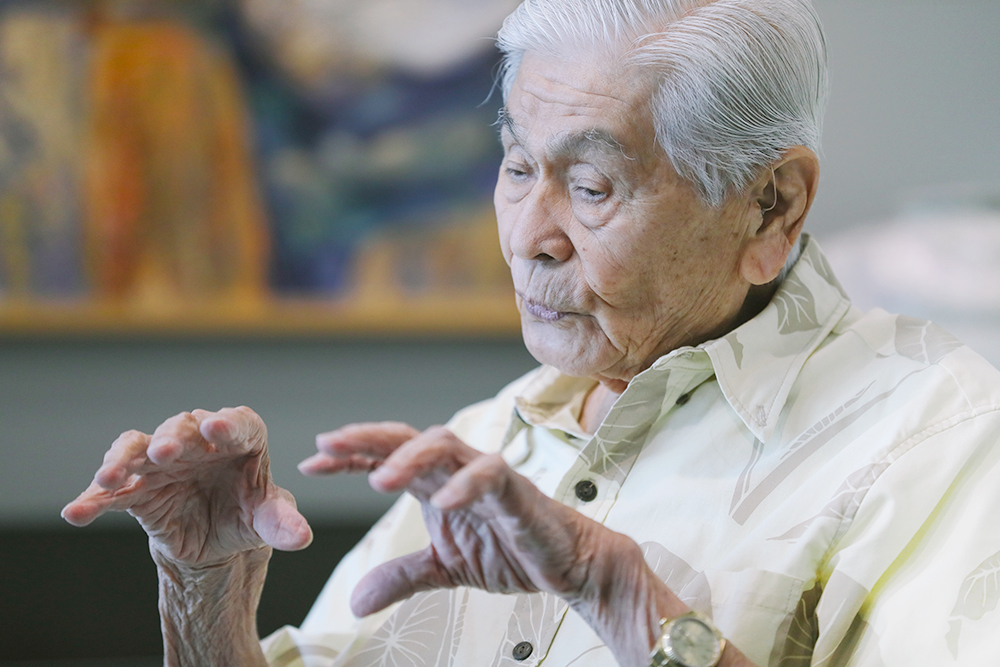
As the first Asian director at First Hawaiian Bank, I was able to start bringing about some much needed change. When I talked with other directors, they said that they had been waiting for someone like me to come in and shake things up. And I did the same thing when I ran for reelection to the Hawaii State Senate in 1964. I went out and talked with people in the community about fairness so that we could all work better together. My background is in law and politics, but let me frame it in a business context to illustrate my point.
The mission of any business is to create products or provide services that the customer wants. Every person in that business must also agree with that mission, but a leader has to set forth what it is that has to be done. They have to bring people together and pull them forward as a unified team. Any business complacent in the way they are currently doing things will be left behind, so leaders must continue to seek out small groups and businesses with new ideas. They can’t afford to assume they will thrive doing what they’re doing forever. And that’s why I say that leaders should focus not on today but on tomorrow. How can you solve today’s problems if you don’t know what you want tomorrow to look like?
A leader does not simply solve a problem within the present context, but looks to the future to see what needs to be done. In my case, after I became governor in 1974, I wanted to know what had happened in the fifteen years since Hawaii achieved statehood. I found that our population was growing 2.5% a year, three times faster than the rest of the U.S. The number of automobiles had more than doubled, from 200,000 to half a million, causing congestion on our roads. We had more students than ever before, which meant more educational issues. But I asked myself, “Is it enough to simply solve our current problems?” That’s when I started thinking about what kind of Hawaii we would want 25 years from then. That, to me, is the role of a leader. So I got hundreds of people together who believed in similar policies , and we put together 12 functional plans with future goals for a whole host of goals, including culture and economy, tourism, national parks and recreation, and transportation. I’m still the only governor in Hawaii’s history that has ever done this. Nobody does this today.
The Future of Hawaii
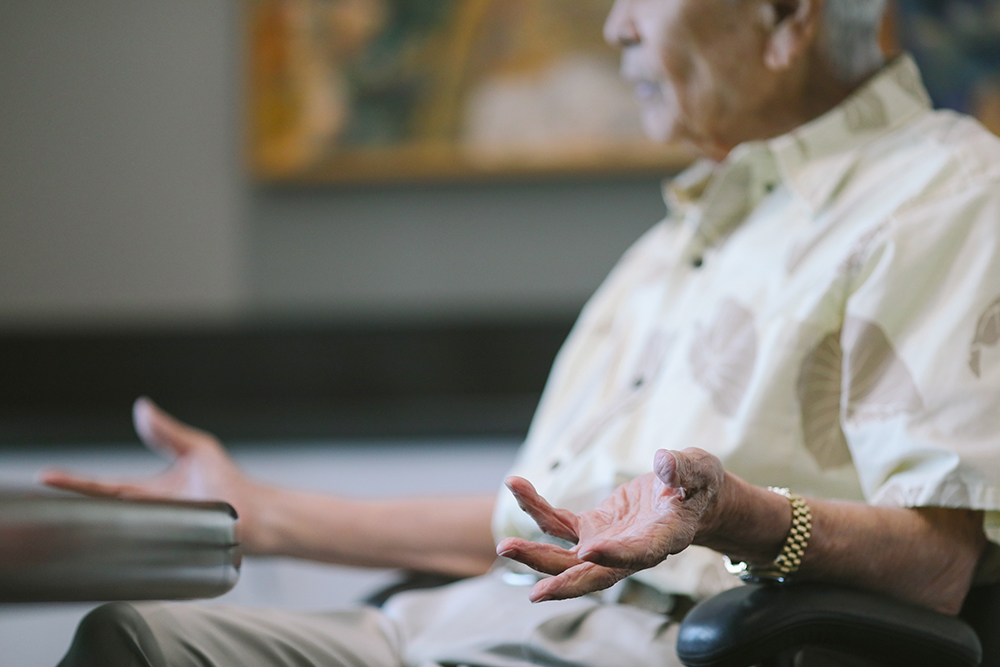
Political leaders today often talk about the problems that we have now. I don’t want to judge what they’re doing, but I think it’s fair for me to say that these leaders are not looking to the future and are not concerned with getting to the heart of the issues, whatever they might be. Many of them forget that the ways in which we solve issues today will have a great impact on our future, yet Hawaii’s future is very important to me.
Tourism is one example of an issue where we need to be particularly careful about the future. Today tourism is looked upon as a very important economic tool for our state and our country, and I agree. Tourism can be very successful if the tourists who come here enjoy themselves as tourists, and Hawaiians appreciate the fact that tourists stimulate the local economy. When we were making our functional plan for tourism, we coined the word “carrying capacity.” We talked about understanding carrying capacity to know when to say enough. But today we’ve forgotten that. I feel sorry for tourists who come here and have to endure the crowds at the beaches, the shopping centers, and everywhere else on the island because we’re over capacity. Once you pass carrying capacity, it has a negative effect on the whole. We have to look at what to do in order to make it possible for tourists to keep coming here and enjoying themselves on our islands.
During my time as governor, Hawaii was also a leading state in renewable energy research. We were the darling to the Department of Energy in Washington. Hawaii is a great contender for geothermal energy, and we were always talking with Washington about all different kinds of energy. There have been some issues, especially with geothermal energy and the recent eruptions, but we tried so many different options. And that’s that point ─ to keep looking for ways in which we can make future energy. Even if all of our energy is eventually renewable, let’s keep finding ways that we can make it better. Another thing I feel very strongly about is aerospace. It is still a relatively unknown region, yet it has such a strong impact on us and our earth. I believe that our space program is going to be very, very important for Hawaii, too. Hawaii is also an ideal location for future aerospace developments because we are the only state located close to the equator in the middle of the ocean. NASA also believes that Hawaii plays a very important role in the space program, and we already have an edge with our astronomy center at Barking Sands. We have unparalleled views of space, advanced astronaut training programs, and the Mauna Kea Observatories (MKO) operated by the University of Hawaii.
Okagesama de: Resilience in Reliance
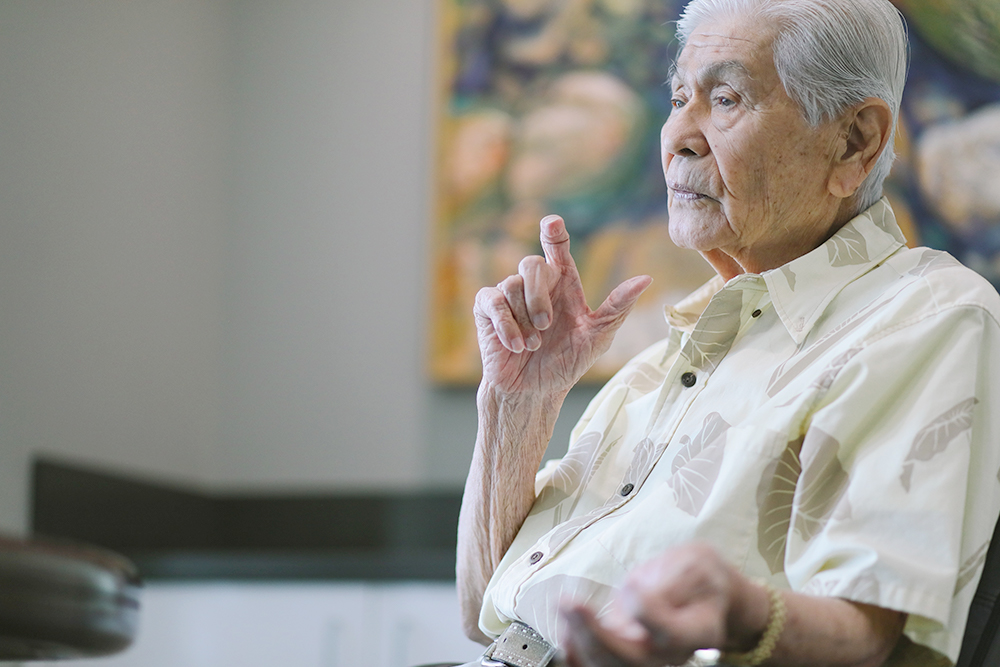
I have mentioned fairness as a guiding principle throughout my career, but humility and perseverance have also influenced the way I see the world. My father used to tell me to remember humility in whatever I do with the phrase okagesama de, a Japanese phrase that embodies the idea that no matter how smart or talented you become, it’s going to be very difficult for you to be the best by yourself. If you want to try to accomplish something, you have to depend on other people. Only then can you do better than you could on your own. And so when you depend on other people, don’t brag that you did everything yourself. Don’t take all the credit. Acknowledge that there are many people who participated and express your gratitude to them. He would always use the word okagesama de. I think that was part of me. I didn’t have to think about whether or not I wanted credit. I always felt grateful to other people for what happened, especially when we would achieve something that took painstaking efforts that made us ganbaru ─ the idea that things don’t come easy but you have to hang in there and not give up.
This goes back before my time, but I believe when the 442nd and 100th Infantry Regiments, the Japanese-American units known for their valiant performance in WWII, went to battle and were put alongside white and black soldiers, they were small guys. And these small guys went in and they rescued, for example, the Lost Battalion of Texas. Other groups tried and failed. So they called the 442 and 100, who went there and decided that they were going to be the ones who would succeed. They were going to rescue those people. They had very, very high casualties but they never gave up. They stuck it out and persevered. That’s the meaning of ganbaru. It would have been shameful for them to say, “Oh, we couldn’t make it, so we gave up.”
A year after the war was over, I myself went to Japan as part of the occupation force. When I got there, the first Japanese person I had a chance to really talk to was a shoeshine boy. He was a seven-year-old boy standing outside the Mitsukoshi Building in Ginza, so I asked him why he was working at such a young age. I was flabbergasted by his response: “Because the country is in trouble.” I was so impressed with this boy that I went to lunch and brought him some bread with jam and butter. He told me arigato and put it aside. When I asked him why he wasn’t going to eat it, he told me that he was going to take it home and share it with his three-year-old sister. I thought to myself, if that’s the Japanese spirit ─ these ideas of okagesama de and ganbaru ─ then Japan is going to make a fast recovery. And when you think about it, the Japanese recovery was miraculous. In no other place has such a fast recovery occurred.
That’s my message. Everybody has a responsibility to persevere for themselves and for their fellow man. Don’t ever be satisfied with what you have and always look out for each other. You can always make yourself better, and you can always do things better than you’re doing them now.
Successful individuals who have achieved sometimes feel they know it all. It is important to pause, talk and reflect on the views, hopes and aspirations of others.
As an older person, I enjoyed the conversation with Mr. Daisuke Sugiyama and to hear about the hopes and aspiration of a young person. I was inspired. He represents the future.
AlohaGeorge R. Ariyoshi Former Governor of Hawaii
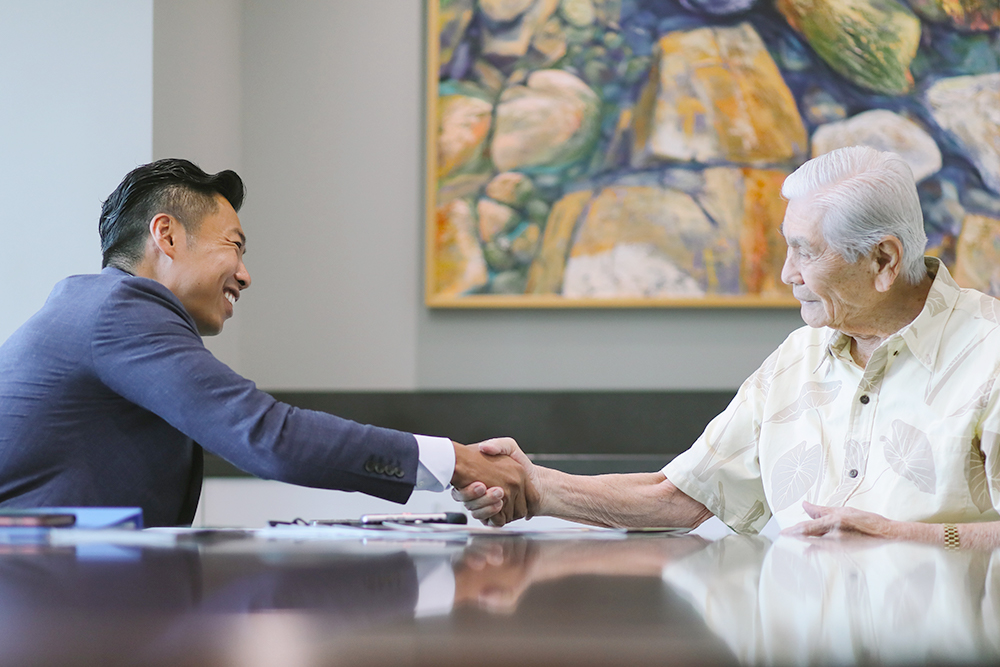
This interview with George Ariyoshi made me realize that I need to always be thinking about the future. What should the next 10, 50, 100 years look like? Not just for myself, but for my family, my friends, my local community, my country, and the world. What can I do to make a better future a reality?
When I interviewed Omron chairman Fumio Tateishi for Vol. 20 of My Philosophy, he too talked about the concept of fairness. A true leader is fair and has a strong desire to give back, character traits that both he and George Ariyoshi share.
Mr. Ariyoshi’s life of fairness and integrity did not begin and end with his career as the governor of Hawaii. His gentle demeanor and sharp gaze tell of the many obstacles he has overcome throughout his life to shape the man that exists today. So when a man like George Ariyoshi tells me, “Daisuke, you are the future,” I feel compelled to look straight ahead and live every day to its fullest.
This interview took place at Watanabe Ing LLP(Honolulu, Hawaii), in June 2018. Editing: Queen & Co. Photography by Better Half Kanae.




